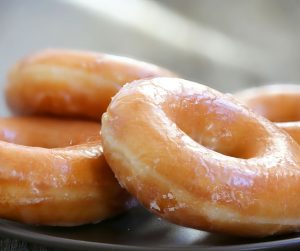Elevating Food Production with Advanced Glazing Technology
In the fast-paced and competitive world of industrial food production, efficiency, consistency, and quality are essential. From golden pastries to glossy hot cross buns, what gives baked goods that irresistible visual appeal is glazing. While it may seem like a finishing touch, glazing plays a critical role in product perception, and the machinery behind it is increasingly sophisticated. Modern glazing systems allow bakeries and food producers to achieve flawless, repeatable results without compromising hygiene or inflating costs.
Consistency, Efficiency, and Savings
Advanced glazing machinery transforms the way bakeries operate. Gone are the days of uneven coatings and wasted glaze. Today’s systems provide perfectly even coverage on every product, enhancing visual appeal and ensuring consistency batch after batch. At the same time, glaze—an often expensive ingredient—is managed with precision. Excess is filtered and recycled, reducing waste while keeping costs under control.
Automation also delivers a major productivity boost. Manual glazing is labour-intensive and slow, but automated machines can increase output while reducing reliance on staff. By combining high throughput with precise resource management, modern glazing technology drives both efficiency and profitability.
Hygiene and Adaptability
Food safety is non-negotiable in industrial kitchens. Glazing machines built from hygienic, easy-to-clean materials ensure compliance with strict sanitation standards, protecting both product integrity and consumer trust. Beyond hygiene, adaptability is key. High-end systems handle a range of products and ingredients, from heated pastry glazes to refrigerated liquid eggs, while adjustable conveyors and dosing allow operators to fine-tune the process for different production speeds and product types.
Acrivarn: Setting the Standard
Acrivarn’s glazing machines exemplify this blend of performance, precision, and hygiene. Dual spinning discs beneath atomising hoods provide even, controlled coverage, while excess glaze is filtered and returned to the reservoir, minimising waste. Fully adjustable conveyors and variable glaze dosing let operators adapt the system to any product. Built entirely from 304-grade stainless steel—including tool-free, hygienic pumps—these machines set a high benchmark for sanitation and durability. Their versatility allows glazing on trays or directly on belts, supporting a wide range of production needs with low operating costs and significant labour savings.
In real-world terms, commercial bakeries benefit immediately. Thousands of pies, pastries, or buns can receive flawless glazing, material waste is cut, surges in demand are handled without additional staff, and equipment maintenance is straightforward, all while maintaining the highest food safety standards.
The Bottom Line
In industrial food production, glazing is far more than decoration. It’s a differentiator that affects quality, efficiency, and brand perception. The right technology:
- Enhances product appeal and market value
- Reduces waste and operating costs
- Boosts throughput with automation
- Maintains strict hygiene standards
With Acrivarn’s high-precision spinning-disc systems, stainless steel hygienic construction, and temperature-controlled variants, food producers gain machinery that delivers beautiful, efficient, and safe glazing every time. For those ready to elevate their production, investing in advanced glazing technology is an upgrade which delivers multiple long-term benefits.

